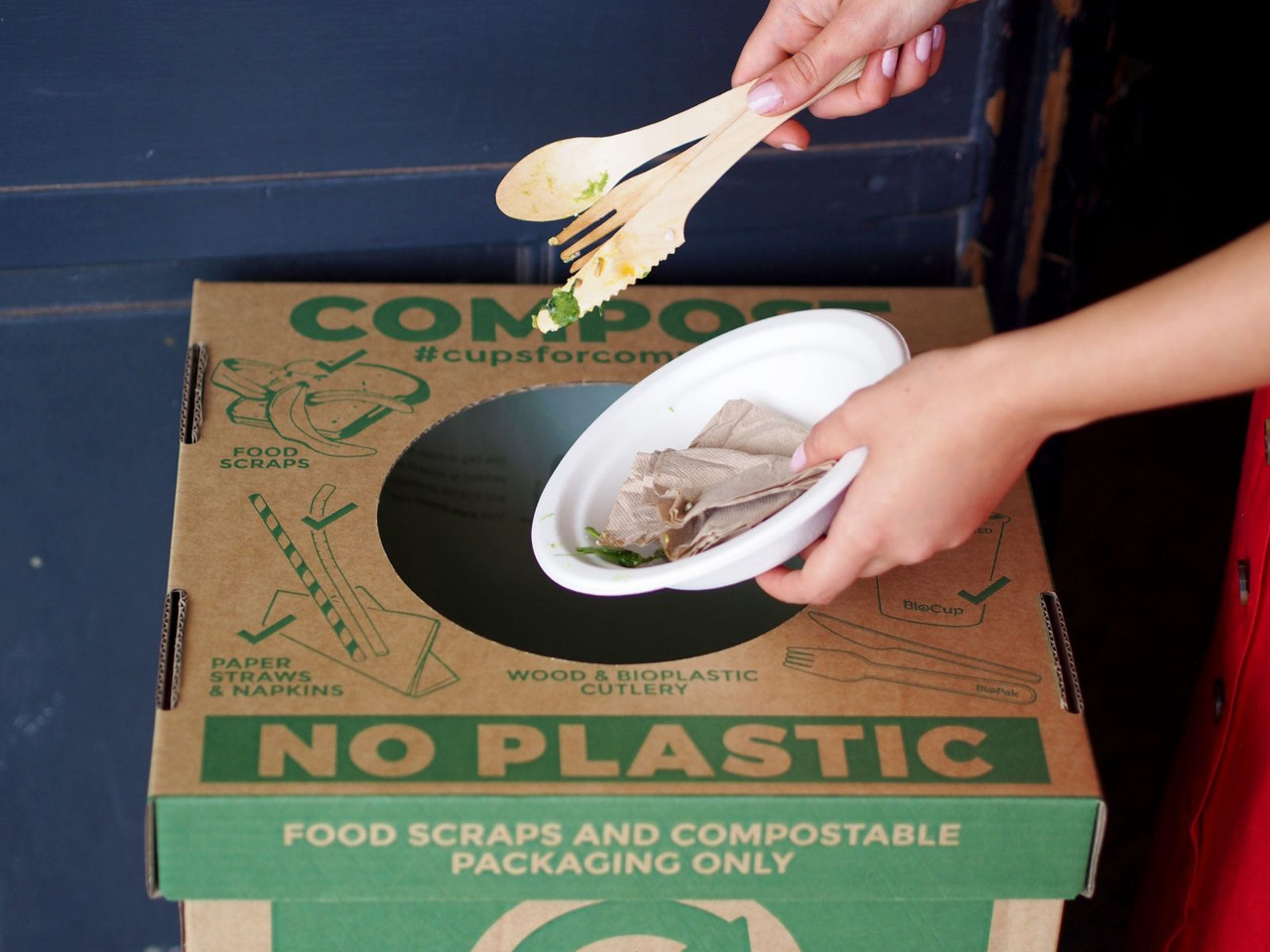
Composting vs Recycling. Which is Better for the Environment?
29th Apr 2020
Have you ever wondered whether composting or recycling is better for the environment? Given a choice, where should you put that piece of rubbish? Here we talk about which option you should choose when disposing of our takeaway packaging. The good news is that, when both are done correctly, landfill is reduced. Both provide a way of extracting value from waste, but are not applicable to the same materials.

So What’s the Difference?
The difference is significant, and is important to know. The main difference is that composting is for organic matter, and recycling is for paper, glass, and plastics. Composting is the breakdown of organic matter into nutrient-rich compost over time using fungi, bacteria, insects, worms, and other organisms. Recycling of non-organic matter, on the other hand, is not a natural process and – like composting – requires knowledge and vigilance both as a consumer and as a manufacturer. Recycling involves separating waste and processing it to make the materials ready for reuse into new products. While recycling is an important step towards a circular economy, depending on the processes involved and the nature of the waste, it can be energy-intensive or produce by-product chemicals. It can also, without the right infrastructure, be expensive or impractical, as Australia's recycling crisis over the last few years has shown.
What Can I Recycle?
Recycling diverts waste from landfill, yet can be energy intensive and easy to get wrong. By recycling plastics, polythene, aluminium, and glass, we divert a significant amount of waste from landfill. What you can and can't recycle differs from council to council, so checking your local council guidelines is important to know exactly what goes in your kerbside bins. Keeping recyclable materials and organic waste separate is also crucial. If a bin-load of recycling is mixed with liquid or food scraps, the entire bin is contaminated and cannot be recycled.
What Can I Compost?
Know the difference between commercial and home composting. Two types of composting exist: commercial and home composting. Commercial composting requires a commercial compost facility to ensure rapid biodegradation of organic material. Factors such as critical mass, systematic aeration, and controlled feedstock and humidity levels maintain the right temperature for the required amount of time. Temperatures as high as 60 degrees are needed to break down materials like hard bioplastics. Home composting can be done in your backyard. Temperatures are lower, which means the process is slower, and some materials will not break down as easily.
BioPak's Compostable Packaging
Plant-based BioPak products can be composted or recycled - but know when to do either! BioPak's products range is certified commercially compostable (AS4736) as well as home compostable (AS5810). BioPak's Compost Service helps by conducting the compost process correctly, helping reduce our negative impact on the environment and working towards a circular economy. We recommend composting any of our plant-based packaging that is contaminated with food scraps, since this cannot be recycled. However, many of our fibre-based products can be recycled too, as long as there is no food or drink residue on the packaging. Our packaging is made from renewable resources. This means it has a smaller CO2 footprint than conventional plastics, and is carbon neutral. Like other organic waste, if it ends up in landfill it will release methane as it degrades, and therefore it is just as important that we dispose of it thoughtfully.
Information taken from BioPak's website. Read about what it means to be carbon neutral and what's so great about FSC-certified paper, on our blog. To see what products we sell, check out our products page.
Planet Friendly Packaging acknowledges the traditional custodians of the land on which we work. Our thoughts go out to everyone affected by COVID-19. Stay safe.

